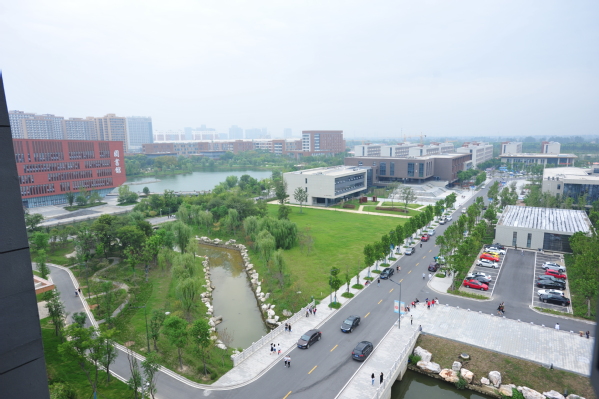
Taizhou Polytechnic College in Taizhou, Jiangsu. [Photo/Taizhou Polytechnic College]
Taizhou in Jiangsu is enhancing the integration of industry and education in order to drive the development of new quality productive forces. To align vocational education with the city's key industries, Taizhou's institutes are optimizing their professional training programs to support sectors such as healthcare, modern manufacturing, agriculture, services, and new energy vehicles.
Over the past three years, Taizhou has introduced 21 urgently-needed vocational programs, related to industries like biopharmaceuticals and smart health and eldercare services. Currently, 88.6 percent of the vocational programs in the city's secondary and tertiary schools align with Taizhou's leading industries.
Jiangsu Jingjiang Secondary Specialized School's mechatronics program exemplifies this alignment. The program focuses on the strengths of Jingjiang, a county-level city in Taizhou, in shipbuilding, engineering machinery, motors, and auto parts. It comprises three specialties: mechatronics technology, CNC technology, and mold design and manufacturing.
To ensure the curriculum matches industry needs, the school is collaborating closely with leading local companies to develop customized textbooks. Over the years, this program has produced a significant number of highly-skilled technical professionals.
In 2023, to meet the demands of the region's healthcare industry, Taizhou established an industry-education consortium led by Taizhou Polytechnic College and Yangtze River Pharmaceutical Group. The consortium includes government agencies, four universities, two vocational colleges, seven secondary vocational schools, and 43 major enterprises.
This year, Taizhou formed the Modern Agriculture Industry-Education Consortium, which focuses on the integrated, green, and intelligent development of the waterfowl, aquaculture, rice, and high-end flower industries.
The establishment of these consortia is effectively deepening the integration of the education, talent, industry, and innovation chains, driving high-quality regional development.